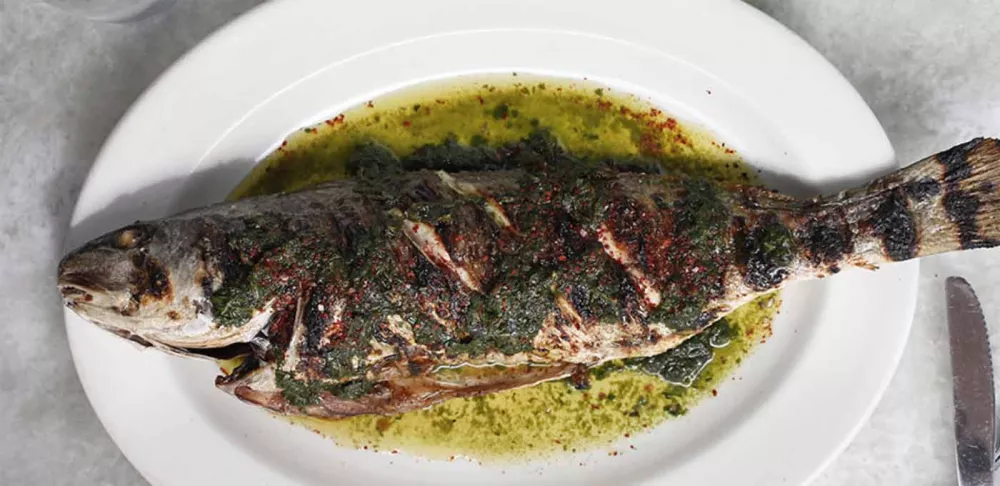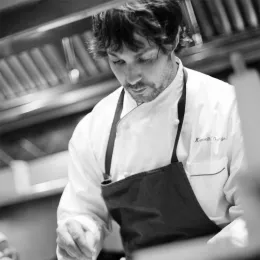On April 3rd, ICE welcomed Chef Donald Link as part of our ongoing Meet the Culinary Entrepreneurs series. This was a unique opportunity for ICE's student body and the general public to interact with one of New Orleans' leading chefs and restaurateurs.
Link is the Chief Executive Officer of the New Orleans based restaurant group Link Restaurant Group, which includes 5 different operations. Link is the recipient of the 2007 James Beard Award for "Best Chef South" and has also been nominated for the "Outstanding Chef" Award in 2012 and 2013. His group's latest addition, Pêche Seafood Grill, also scored its fourth and fifth JBF Awards in 2014, for "Best New Restaurant in America" and "Best Chef: South."
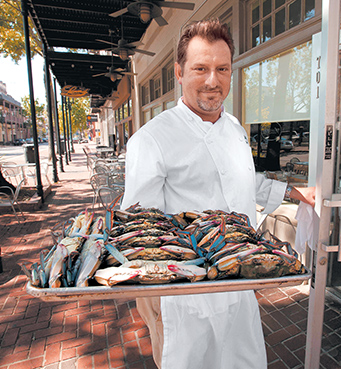
He began his professional culinary career at the age of fifteen, inspired by his grandparents' mastery of Cajun and southern cooking. Working his way up the professional ladder, he made it a priority to learn all the roles of the kitchen—including the not-so-glamorous ones.
Through this careful strategy of observation and practice, Link has honed his celebrated culinary identity, creatively utilizing his southern roots in the process. It goes without saying that Link is not just a master chef; he is a profitable (albeit humble) businessman as well. Accordingly, he didn't spend much time discussing his personal accomplishments with ICE students.
Instead, Link used his time at the school to discuss the business tactics required to build a successful restaurant operation. He offered advice based on his own experiences, from business plans to food costing and net sales calculations, while sharing a number of amusing personal anecdotes.
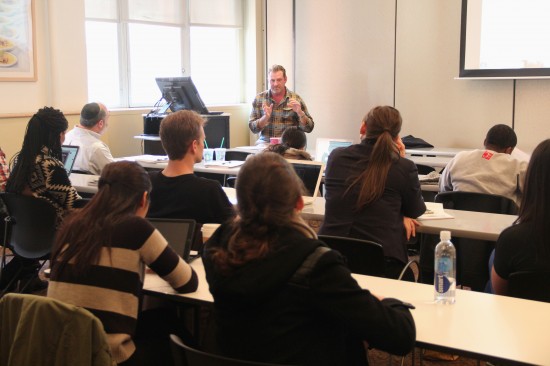
When it comes to hiring, Link looks first and foremost for drive and motivation in a potential employee. He claims he can tell within a few minutes if someone will work well in his kitchen. He gives aspiring cooks a chance, observing them closely and examining their overall culinary presentation. From there, he can determine if a person is a good fit for his operation.
During his presentation, Link spent some time discussing the path to becoming a chef. He focused on training in the kitchen accompanied by real-world experience and cautioned students not to be in a rush to move up. When you spend time focusing on a promotion, he stressed, you disregard what’s going on around you, which is of critical importance in a professional kitchen. Ingesting information and mastering important culinary skills is vital for advancement and takes time, he said. Link encourages students to immerse themselves in a variety of culinary environments to diversify their portfolios – it helps you be more creative, he said and makes you more prepared when the time finally comes that you get to create your own dishes.
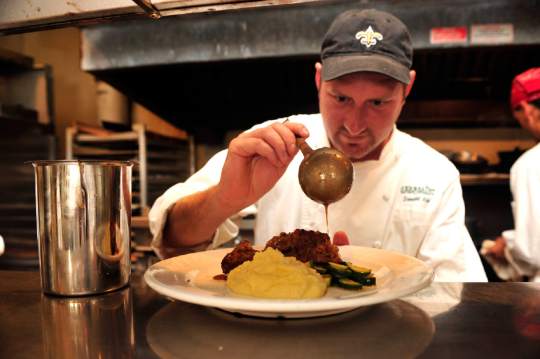
When you reach the position of executive chef, your responsibilities multiply exponentially, Link says. Foreseeing problems, mentoring your staff and monitoring cost are all the head chef's responsibility. Since the price of food is dependent on seasonal availability, environmental factors and transportation costs (for example, non-local ingredients that must be imported), the executive chef must carefully monitor food costs and adjust the menu accordingly, since at the end of the day, running a restaurant is about making a profit and utilizing costs efficiently.
Link also discussed his current role as a restaurant business owner. Knowing why people eat out and how to assess your market are key to running a successful business. Furthermore, he said, it's your responsibility to cater to the community your restaurant serves. When tourists visit and see a restaurant with a strong sense of place and authenticity, they are immediately drawn to it. Of course, getting deemed "one of the top 3 restaurants that count” in The New York Times or named one of the "20 Most Important Restaurants in America" by Bon Appétit doesn't hurt either, as is the case with Link's restaurant, Cochon. But following a thoughtful strategy like Link's is precisely how Cochon landed such profitable distinctions.
As far as creating a rewarding work environment, Link discussed his relationship with his employees and the importance of maintaining healthy and positive relationships. He believes that fair pay is key, as is treating your staff with respect and appreciation. These two factors result in a low turnover rate and a trustworthy team that will remain with you for years on end. Training is also crucial, as is having an environment that facilitates training naturally. In fact, one of the qualities Link loves most about his staff is that they are constantly communicating with one another in a helpful, efficient fashion—a crucial component to running a successful and sustainable operation.
Nearing the end of his talk, Link got personal. He shared his experience with Hurricane Katrina and its devastating effect on the New Orleans community. He lost everything—his home, his belongings and one of his restaurants. He explained that at the time, the city wasn’t taking this storm seriously (since NOLA had dodged other storms). Luckily, Link trusted his gut and left the city to meet his family the day before Katrina hit, encouraging his whole staff to do the same.
When he returned, the devastating effects of Katrina were everywhere. While Link, like so many others, lost so much, he was resolved to rebuild what he had worked for his entire life. He gave his staff three weeks off to get their personal affairs in order. Meanwhile, he set to work cleaning mold, gutting interiors and building new furniture for his operation. Miraculously, Link wound up re-opening three weeks later, serving a limited menu on paper plates. For Link, this feat wasn't about making an immediate profit, it was about nourishing his community.
Chef Link's sustained success is a testament to the fact that dedication and thoughtful planning, as well as cultivating close personal relationships with your staff and the community, is vital to owning and operating a successful restaurant. We're grateful that he could join us for such an informative and inspiring chat with our students!


